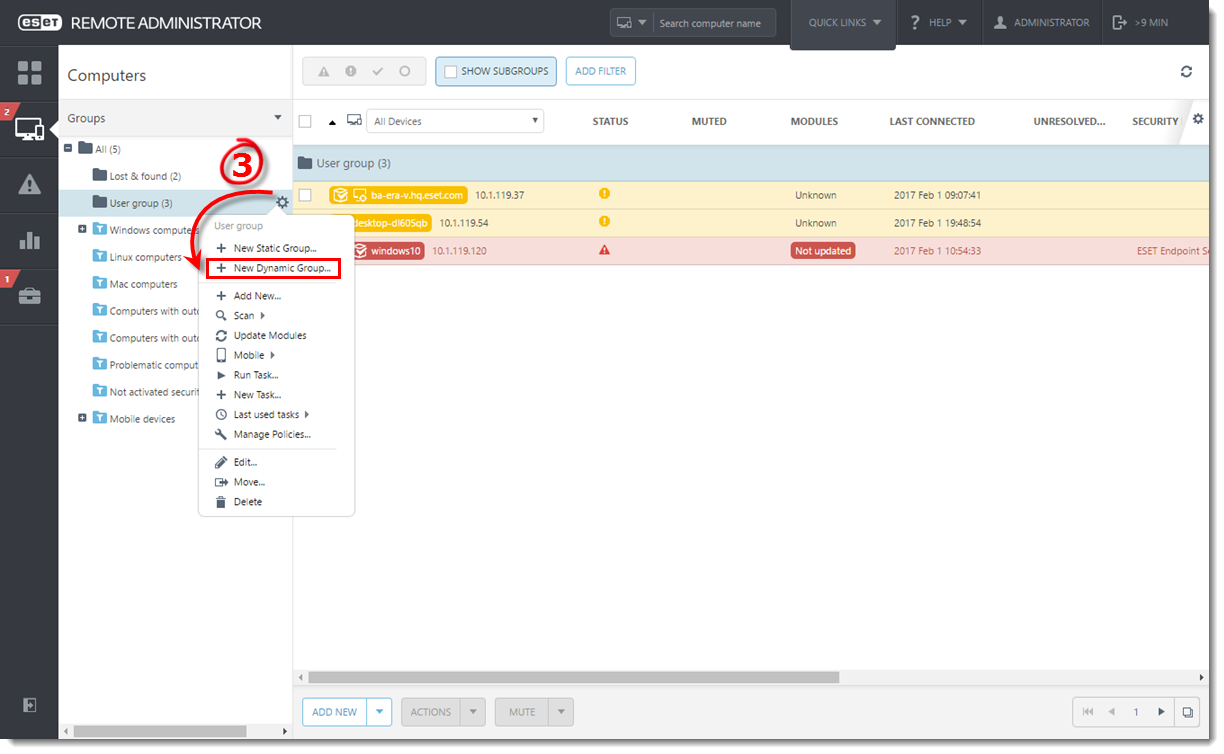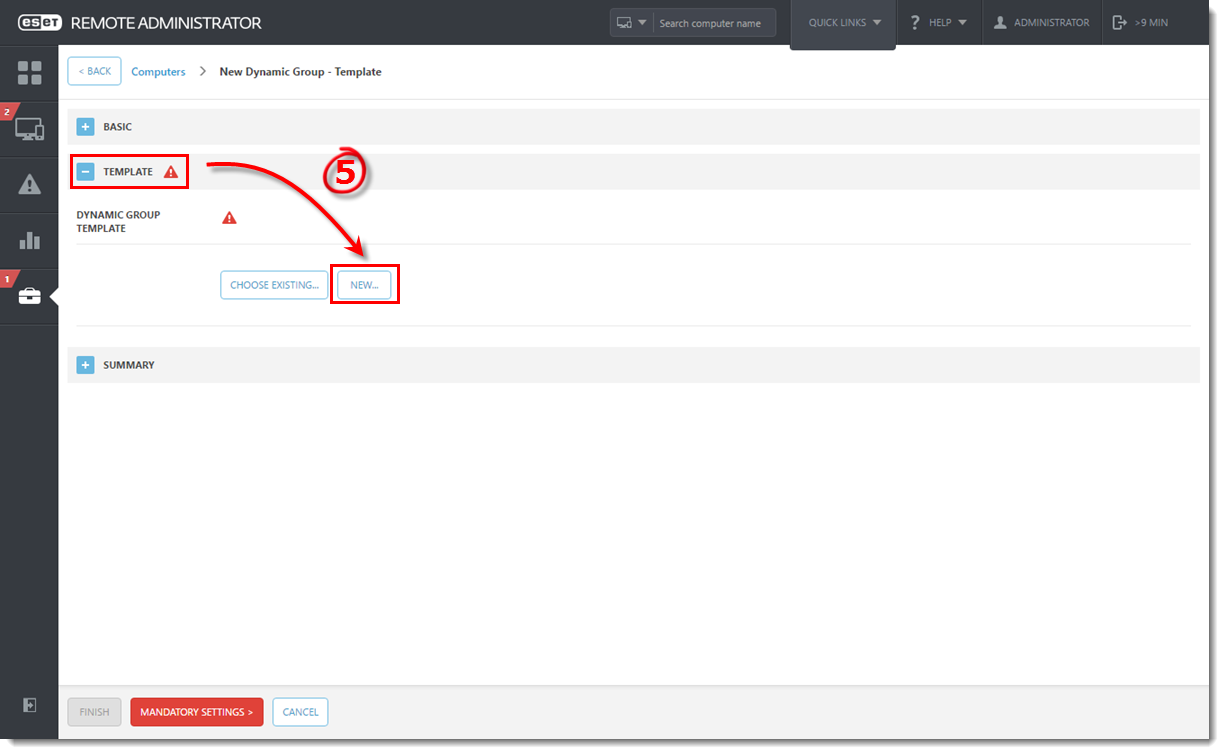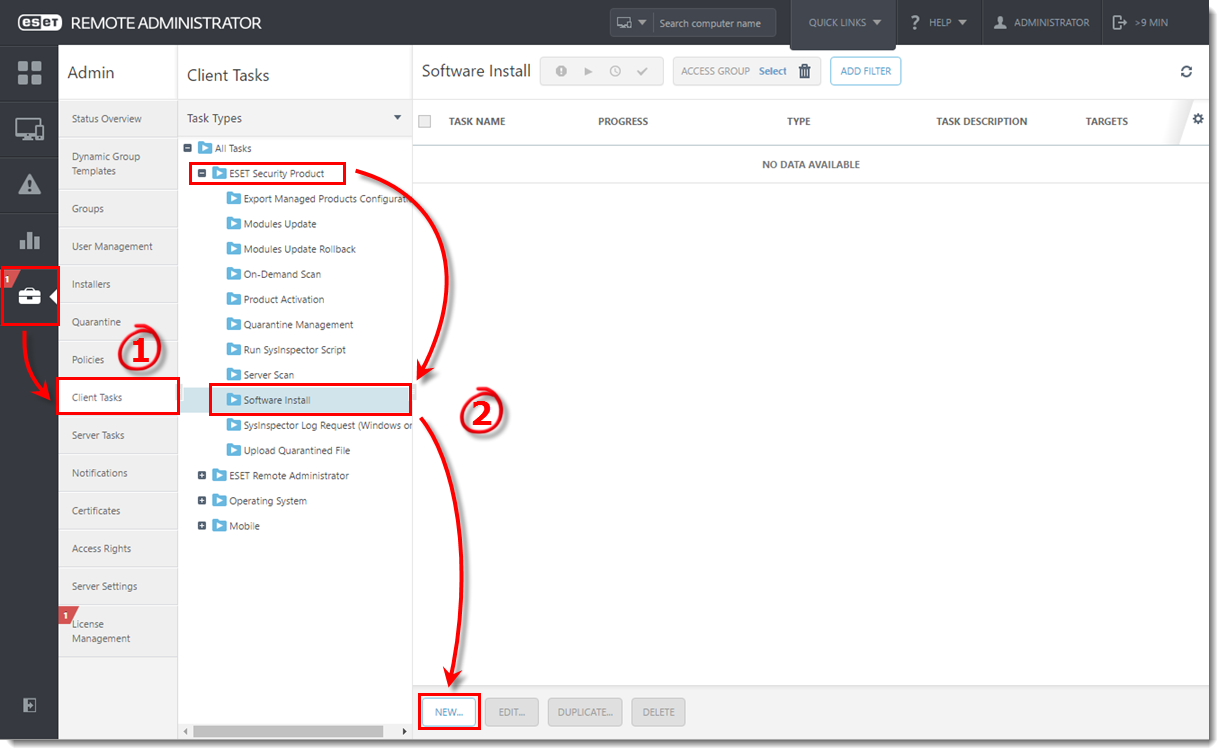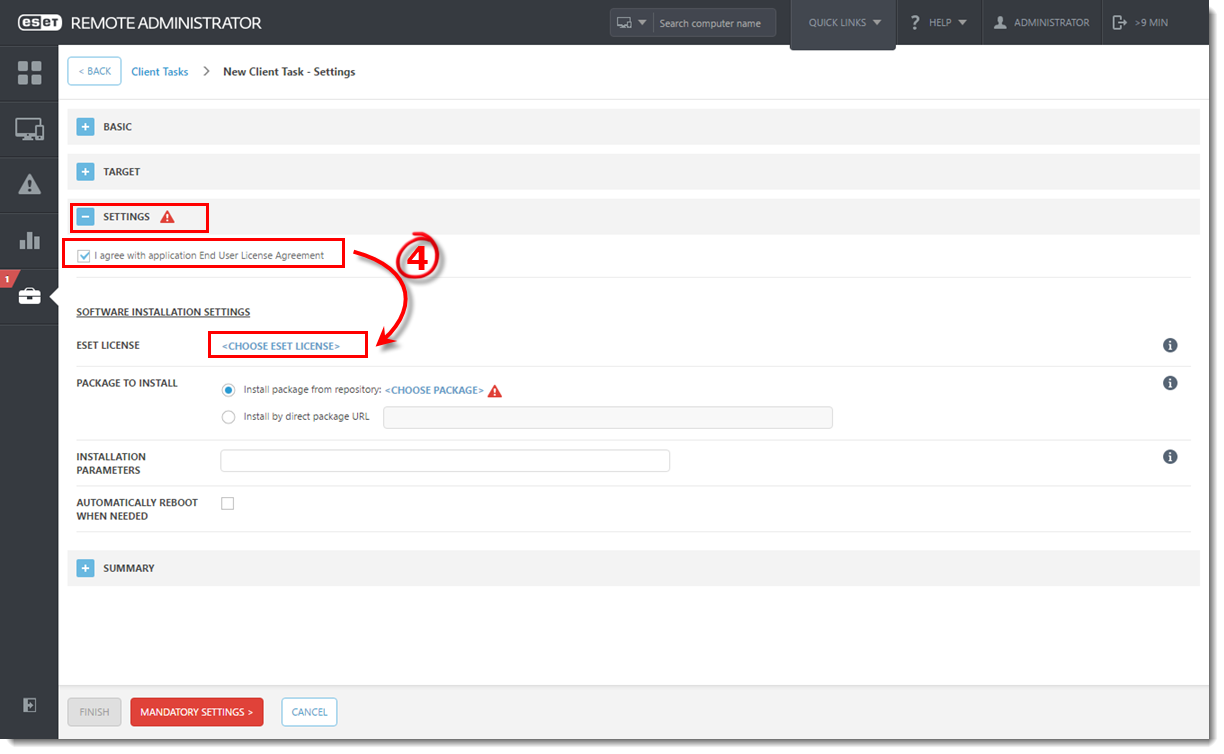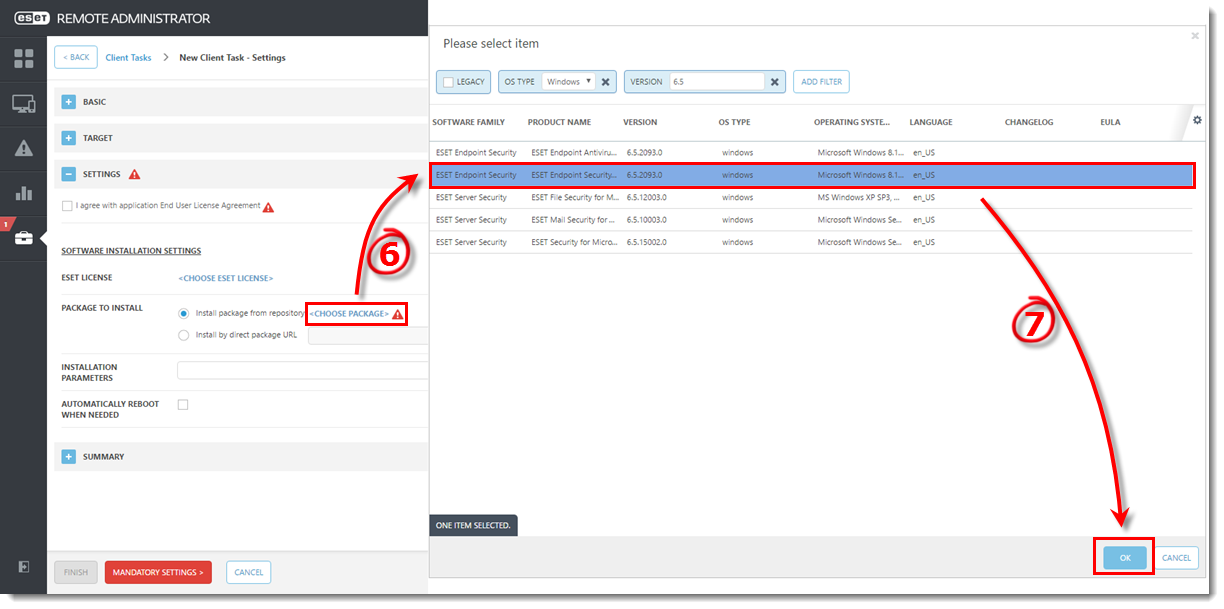Issue
ESET business product no longer supported
This article applies to an ESET product version that is currently in End of Life status and is no longer supported. The content in this article is no longer updated.
For a complete list of supported products and support level definitions, review the ESET End of Life policy for business products.
- Configure a dynamic group that identifies client computers not protected by ESET endpoint products
- Configure an automated task to deploy ESET endpoint products to unprotected computers
Solution
Examples of Dynamic Group templates and their use
For aditional examples of using Dynamic Group templates, see Dynamic Group template – examples in ERA Online Help and Related articles below.
I. Create New Dynamic Group
ERA 6.5 User Permissions
This article assumes that your ERA user has the correct access rights and permissions to perform the tasks below.
A user must have the following permissions for their home group:
| Functionality | Read | Use | Write |
| Groups & Computers | ✓ | ✓ | ✓ |
Once these permissions are in place, follow the steps below.
- Open ESET Remote Administrator Web Console (ERA Web Console) in your web browser and log in.
- Click Computers
 .
. - Select the parent static group that you want the new group to be under, click the gear icon and then select New Dynamic Group from the context menu.
Figure 1-1
Click the image to view larger in new window
- Type a name for the group into the Name field. If necessary, configure the Description and Parent Group settings to your preferences.
Figure 1-2
Click the image to view larger in new window
- Expand Template and click New.
Figure 1-3
Click the image to view larger in new window
- Type a name into the Name field.

Figure 1-4
- Expand Expression, select NOR (All conditions have to be false) from the Operation drop-down menu and then click Add Rule.
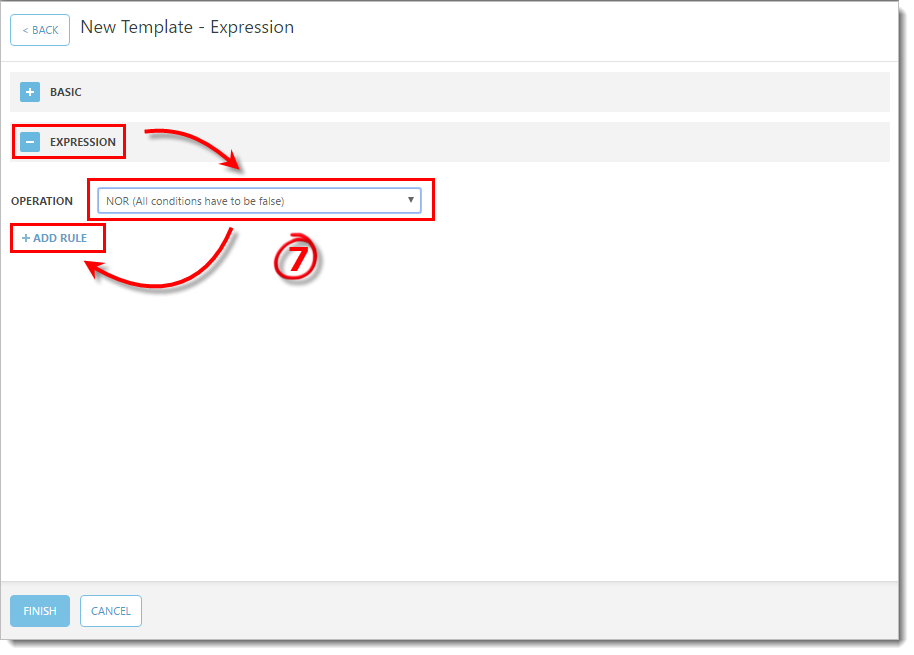
Figure 1-5
Click the image to view larger in new window - Expand Installed software, select Application name and then click OK.

Figure 1-6
- Select has prefix from the drop-down menu, enter ESET Endpoint or ESET File (depending on which product you want automatically deployed to client workstations in this dynamic group) and then click Finish.
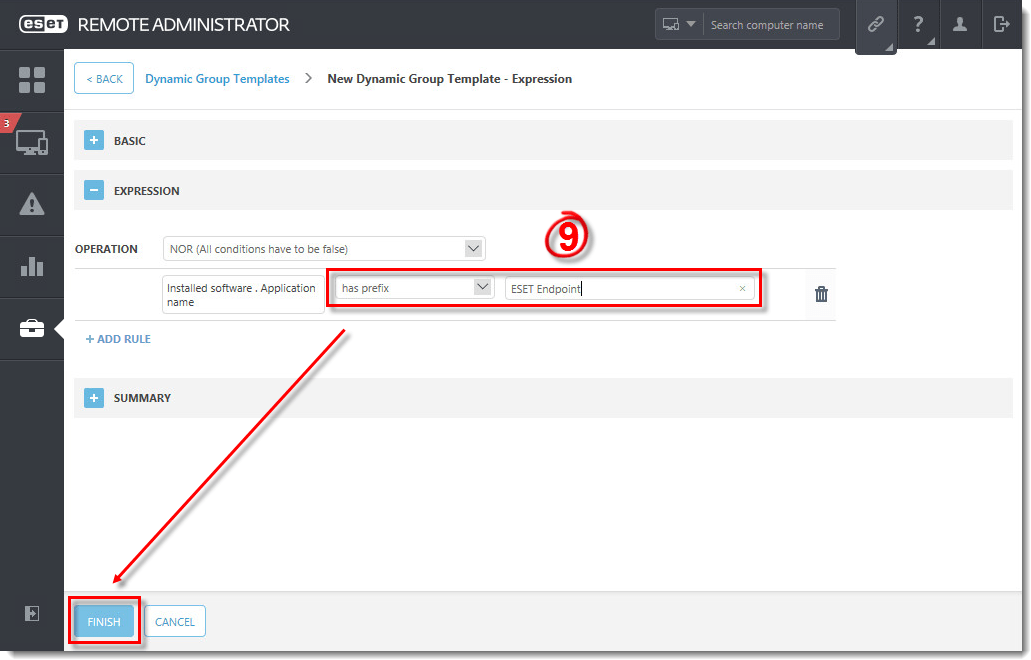
Figure 1-7
- Click Finish and proceed to part II.
II. Create a new Client Task to deploy ESET endpoint products to unprotected clients
A user must have the following permissions for each affected object:
| Functionality | Read | Use | Write |
| Groups & Computers | ✓ | ✓ | ✓ |
A user must have the following permissions for their home group:
| Functionality | Read | Use | Write |
| Software Install (under Client Tasks) | ✓ | ✓ | ✓ |
Once these permissions are in place, follow the steps below.
- Click Admin
 → Client Tasks.
→ Client Tasks. - Expand ESET Security Product, select Software Install and then click New.
Figure 2-1
Click the image to view larger in new window
- Type a name for the task into the Name field (configure the other settings in the Basic section as necessary).
- Expand Settings, select the check box next to I agree with application End User License Agreement and then click Choose ESET License. Please note that you will add Targets after the task is created.
ESET Remote Administrator version 6.2.11 and earlier:
Adding targets is done during task creation (for example, after adding a new task and giving it a Name, click Target to add groups or clients to the task).
Figure 2-2
Click the image to view larger in new window - Select a valid license and click OK.
- Click Choose Package.
- Select the product you want to deploy and click OK.
Figure 2-3
Click the image to view larger in new window - Click Finish when you are finished making changes to your task.
- Click Create Trigger when you are asked whether you want to add a trigger for the client task.

Figure 2-4
- Expand Targets. Click Add groups and select the check box next the dynamic group you created in part I. Click OK.
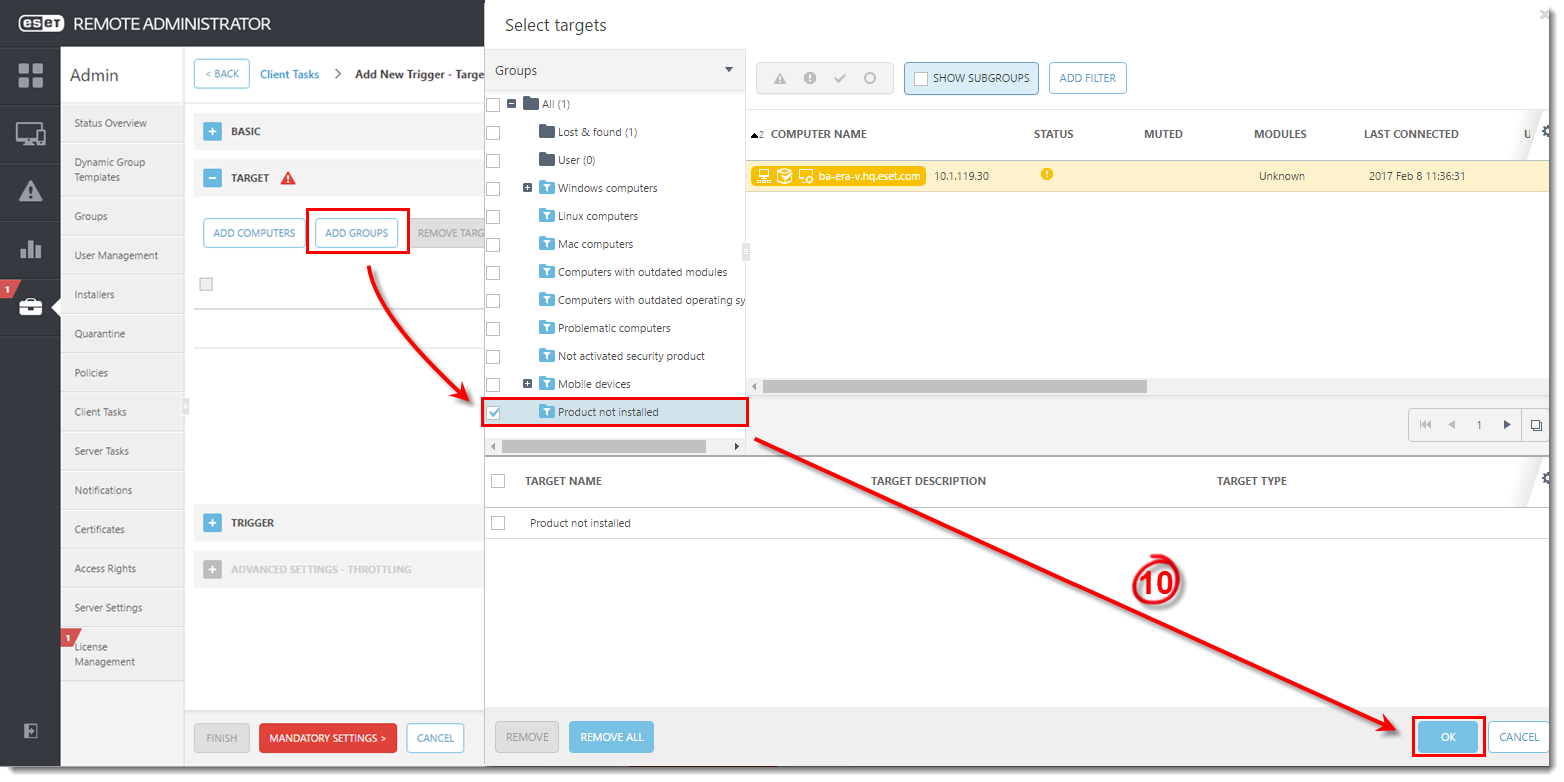
Figure 2-5
Click the image to view larger in new window - Expand the Trigger section and select Joined Dynamic Group Trigger from the Trigger Type drop-down menu.
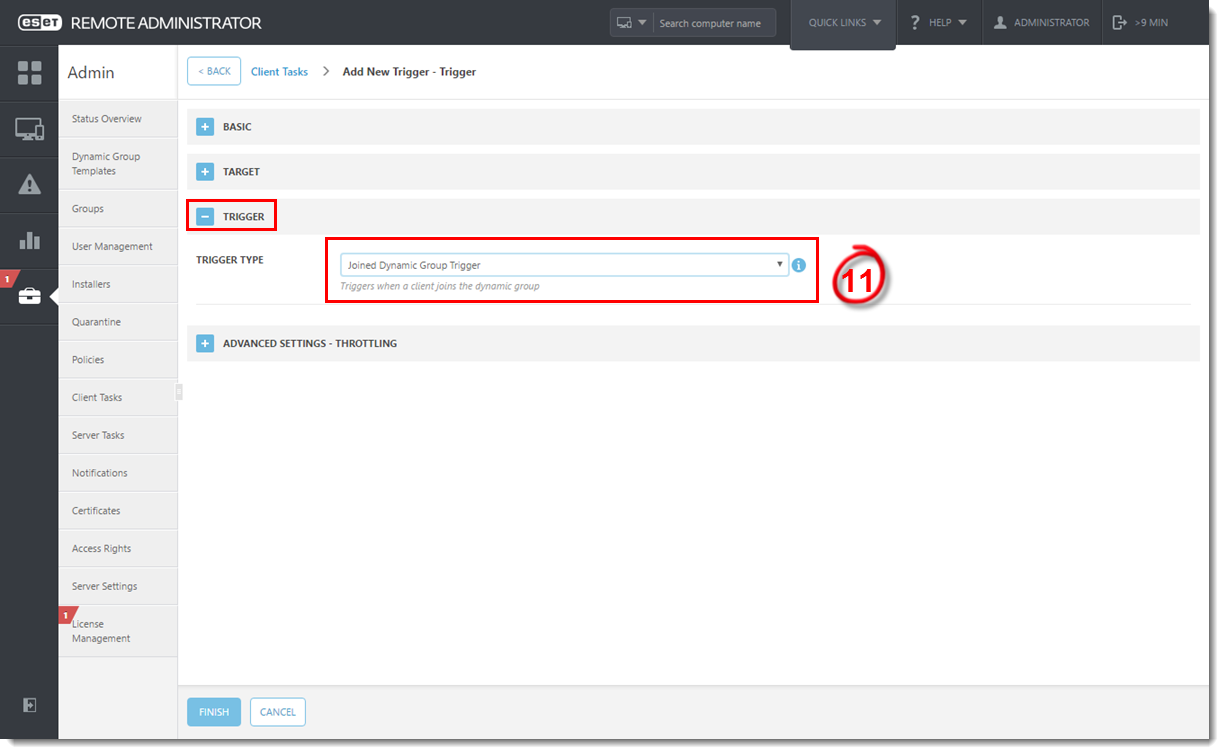
Figure 2-6
Click the image to view larger in new window - Click Finish.
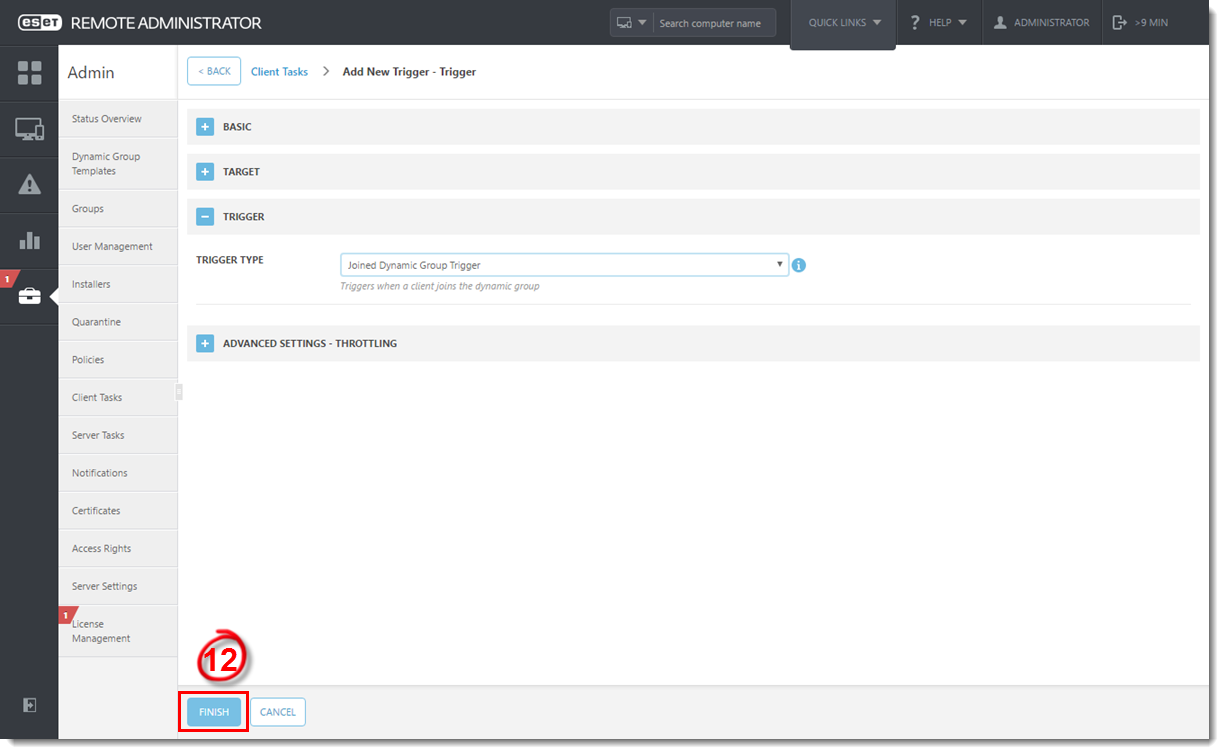
Figure 2-7
Click the image to view larger in new window
Related articles:
- Create a new certificate for new workstations to automatically join a Dynamic Group in ESET Remote Administrator (6.x)
- Configure endpoints to use different update settings depending on the network they are connected to using ESET Remote Administrator (6.x)
- Configure ESET Security Management Center to automatically deploy ESET endpoint products to unprotected computers (7.x)
- Create a dynamic group template for computers with ERA Agent and without ESET security product (6.x)
- Create dynamic group templates in ESET Remote Administrator (6.x)
Source : Official ESET Brand
Editor by : BEST Antivirus KBS Team
How useful was this post?
Click on a star to rate it!
Average rating 0 / 5. Vote count: 0
No votes so far! Be the first to rate this post.


